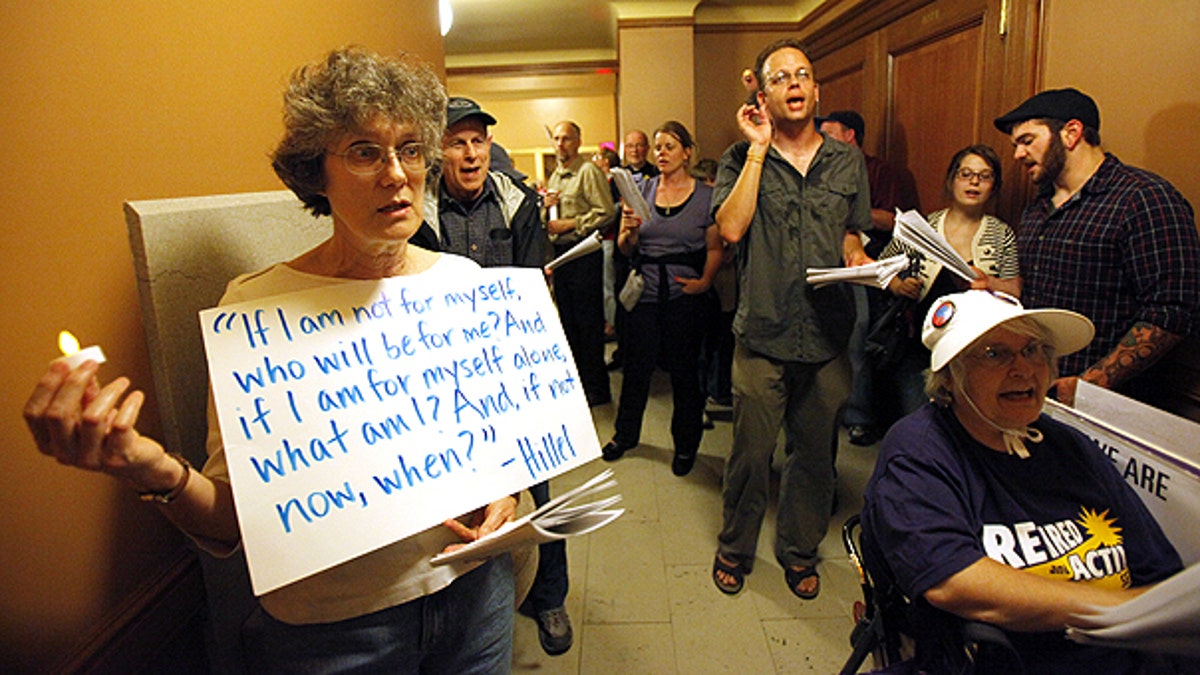
June 2: Protesters wait to be let into a meeting of the Joint Committee on Finance at the state Capitol in Madison, Wis. (AP)
MADISON, Wis. -- The Legislature's budget committee reopened the fight over collective bargaining rights shortly after midnight on Friday, proposing that newly hired police and firefighters be forced to pay more for their health insurance and pension benefits.
The change, approved by the Republican-controlled committee on an 11-4 party line vote, would force police and firefighters to make the same level of contributions of other public workers as required under a bill pushed by Gov. Scott Walker and passed by the Legislature in March.
Police and firefighters were exempt under that bill.
That measure, which also took away nearly all collective bargaining rights from state workers, was voided by a circuit court judge last month and hasn't taken effect. The state Supreme Court is hearing arguments Monday as to whether it should take the case and allow the law to be enacted.
The Legislature is also considering passing the law again as part of the budget in case the court fails to act or strikes down the law.
The change added to the budget Friday by the Joint Finance Committee deals only with police and firefighters. It would force newly hired police and firefighters to pay 5.8 percent of their pension benefits and 12 percent of their health care costs, just like other public workers under the bill passed earlier.
It would also forbid collective bargaining over the design and choice of health insurance coverage plans for police and firefighters, but the cost could still be negotiated.
Committee co-chair Rep. Robin Vos, R-Rochester, said the measure gave local governments "reasonable tools" to help save money.
The change becomes part of Walker's budget, which the Legislature is expected to debate later this month. It must pass both the Republican-controlled Senate and Assembly and be signed by Walker before it takes effect.
Democrats on the budget committee blasted the move.
"Police and fire have been expecting this assault," said Sen. Bob Jauch, D-Poplar. "They knew it was coming. They don't deserve it. And it defies common sense."
Rep. Tamara Grigsby, D-Milwaukee, predicted the move would energize the public again. During the height of the fight over the collective bargaining bill, tens of thousands of people marched on the Capitol for weeks in an ultimately vain attempt to block the bill's passage.
Dozens of protesters attended the committee's meeting that began Thursday evening, and more than two dozen were removed by police for shouting at lawmakers and disrupting the process. The collective bargaining changes didn't come up for consideration until five hours later, shortly after midnight, when the room was nearly empty.
"For you to slip this through at whatever time it is, it's disgusting, it's union busting, whatever chant you want to yell," Grigsby said. "It's sickening."












































